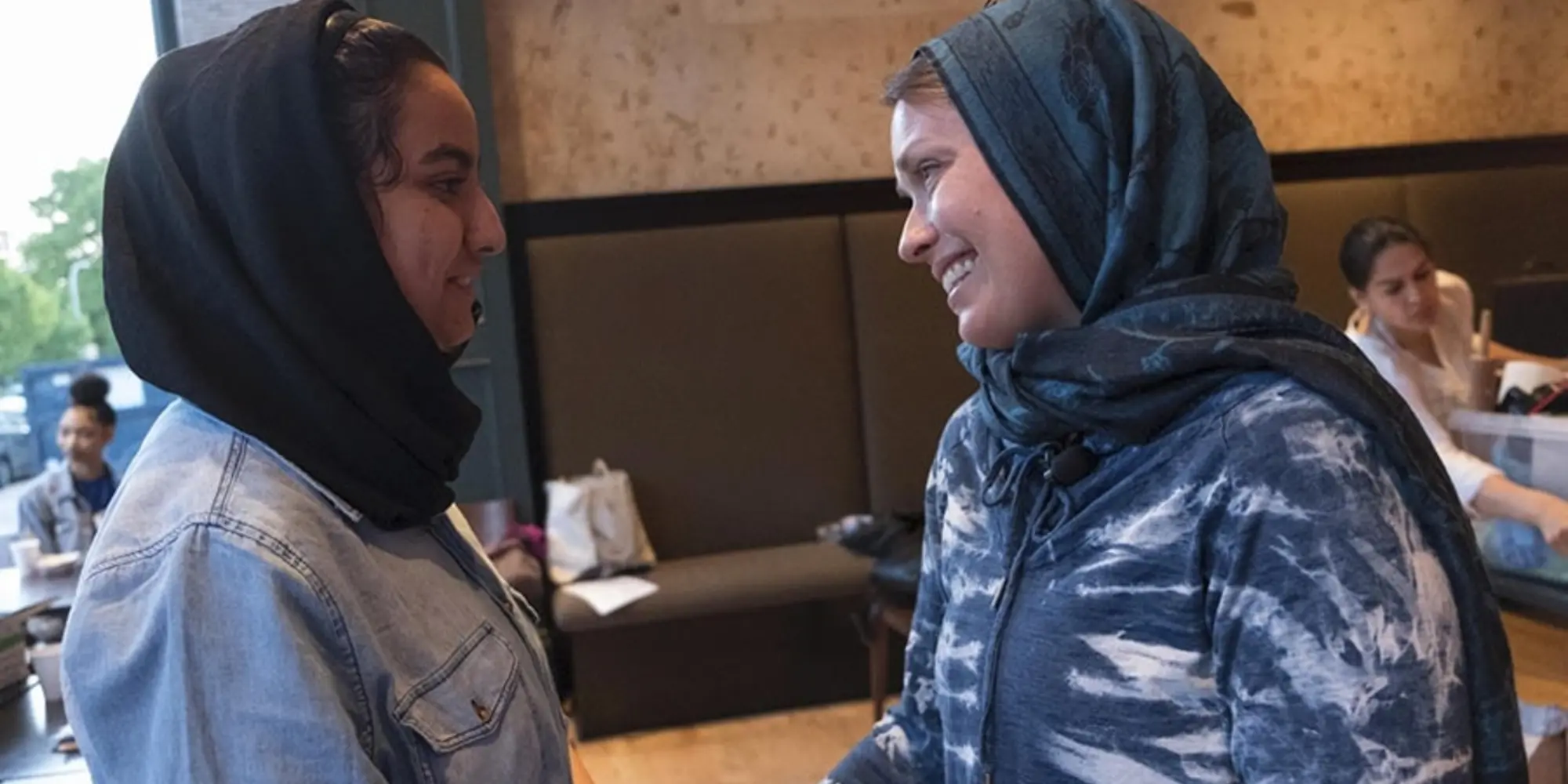
'Khuraki' Performance, Panel Highlight Afghan Refugee Experience
Media Inquiries
When the United States withdrew military forces from Afghanistan in August 2021, Pittsburgh was chosen to be one of 19 American cities to welcome Afghan refugee families. The transition to America, although welcome to most, was not without an adjustment period — especially for female refugees.
"Khuraki: A Celebration of Afghanistan in Pittsburgh(opens in new window)," which was developed before the U.S. withdrawal, is a snapshot of a moment in time (2019) when Afghan refugees still held out some hope that there was possibility for them to return home. The interactive theater experience, highlighted by food and music, will be presented at 5 p.m. Tuesday, Feb. 15, in the Rangos Ballroom of the Cohon University Center (CUC) at Carnegie Mellon University. It is free and open to the public. Masks are required. A Zoom option also is available for those not wishing to join in person; all attendees must register here(opens in new window).
The performance also benefits Afghan women in a new foodservice venture with 75 chilled Afghan meals available for pickup for viewers of the livestream at noon at the Center for Student Diversity and Inclusion(opens in new window) in A75 of the CUC on a first-come, first-served basis. Hot meals also will be available for pickup for the live audience after the performance. The cooks, some of whom are also subjects of the play, will be there to greet audience members after the show.
"Through food, live music and highlights of the Afghan culture, 'Khuraki' helps audiences learn more about what these women left behind, what they've preserved and what their futures hold." — M. Shernell Smith
At 5 p.m. Thursday, Feb. 17, a panel moderated by Ethan Pullman from the CMU Libraries will convene in the Tepper Building, room 4242. It will also be live-streamed. The discussion will focus on Afghan resettlement in the Pittsburgh area. The panel features Ivonne Smith-Tapia, the director of Refugee and Immigrant Services at Jewish Family and Community Services of Pittsburgh; Sohrab Bakhshi, contractor for the U.S. military and former Afghan refugee, who personally experienced the transition when he was brought to the U.S. under a Special Immigrant Visa; and historian Emanuela Grama(opens in new window), associate professor and director of Global Studies at CMU, who will discuss dislocation and its related side effects. The panel is free and open to the public. Masks are required. Attendees must register here(opens in new window).
"This panel will help us view the U.S. withdrawal — not just through the foreign-policy lens, but in terms of what it meant to the citizens of Afghanistan," said Daniel Silverman(opens in new window), assistant professor in Carnegie Mellon's Institute for Politics and Strategy(opens in new window) and a member of the panel. He will be giving historical context about the transition in terms of the Middle East, in general, and providing insight on the political science and international relations aspects of the transition.
"Hearing from people who experienced the transition and knowing what these refugee families are going through will help us see the big-picture policy decisions in the context of the way they affect real people."
"Khuraki" was created by Pittsburgh production company RealTime Interventions to "challenge Americans' perceptions about Afghanistan while supporting a group of Afghan female refugees in their goal to start a collectively owned food business in Pittsburgh," according to creator/writer Molly Rice. The production was a 2019 nominee for the Pittsburgh Mayor's Award for Public Art.
The word khuraki in the Afghan language, Dari, means "eat" or "meal," and that is an integral part of the performance, which features personal insights of five Afghan women. They treasure their homeland and heritage and now must immerse themselves in an American lifestyle.
"Through food, live music and highlights of the Afghan culture, 'Khuraki' helps audiences learn more about what these women left behind, what they've preserved and what their futures hold — including the establishment of a catering company featuring traditional Afghan meals," said M. Shernell Smith(opens in new window), executive director of CMU's Center for Student Diversity and Inclusion.
The performance and panel discussion are joint efforts of several Carnegie Mellon entities: The Center for Student Diversity and Inclusion; the Center for the Arts in Society(opens in new window); the Institute for Politics and Strategy; the College of Fine Arts' Office of the Assistant Dean for Diversity, Equity and Inclusion(opens in new window); and Dietrich College's departments of History(opens in new window) and Modern Languages(opens in new window). The Carnegie Mellon School of Music(opens in new window) also was involved — the music in "Khuraki" was originally performed by members of a class taught by Professor Monique Mead(opens in new window) and Research Associate Jennie Dorris.
